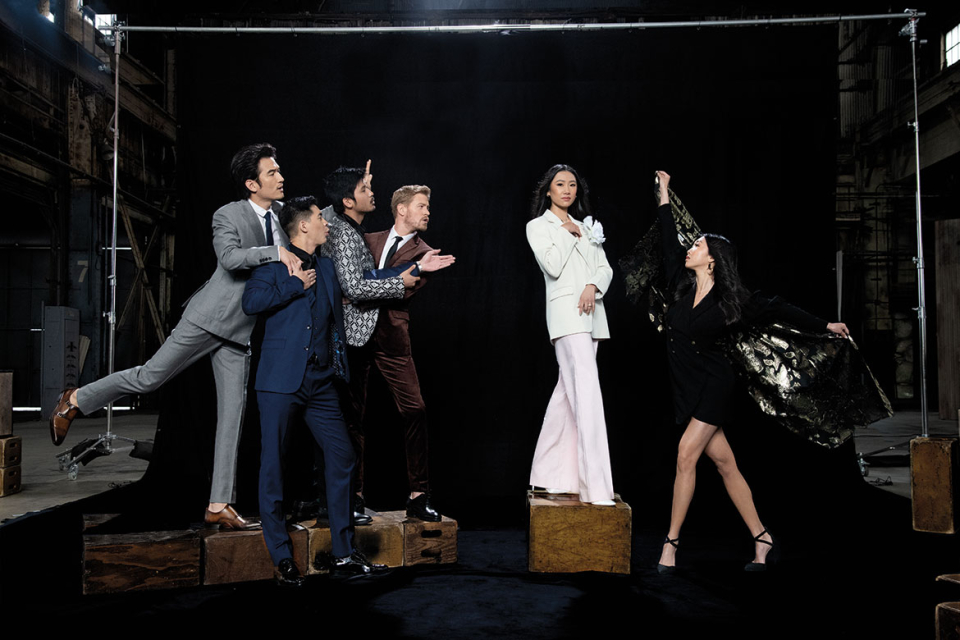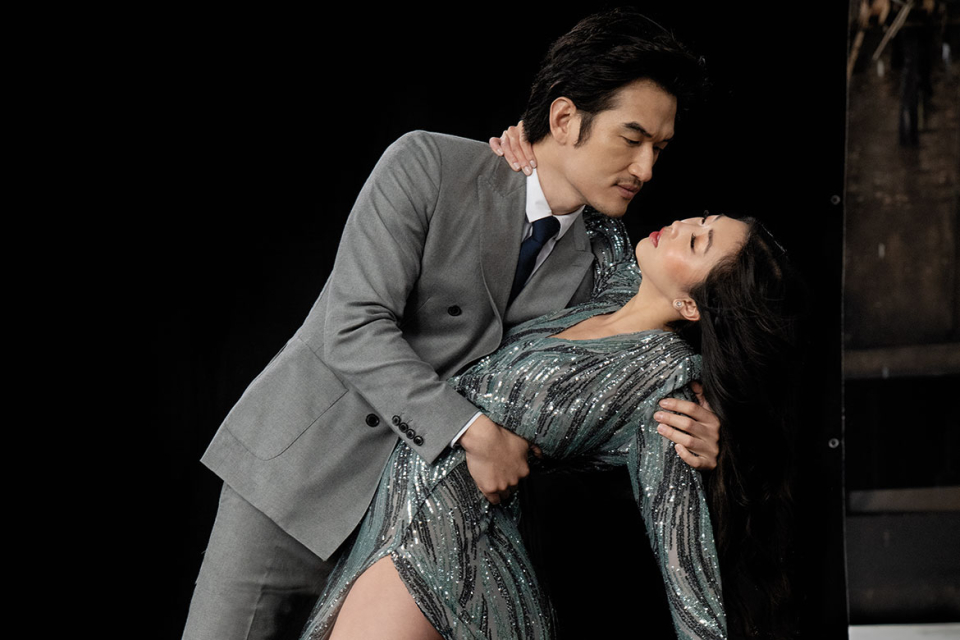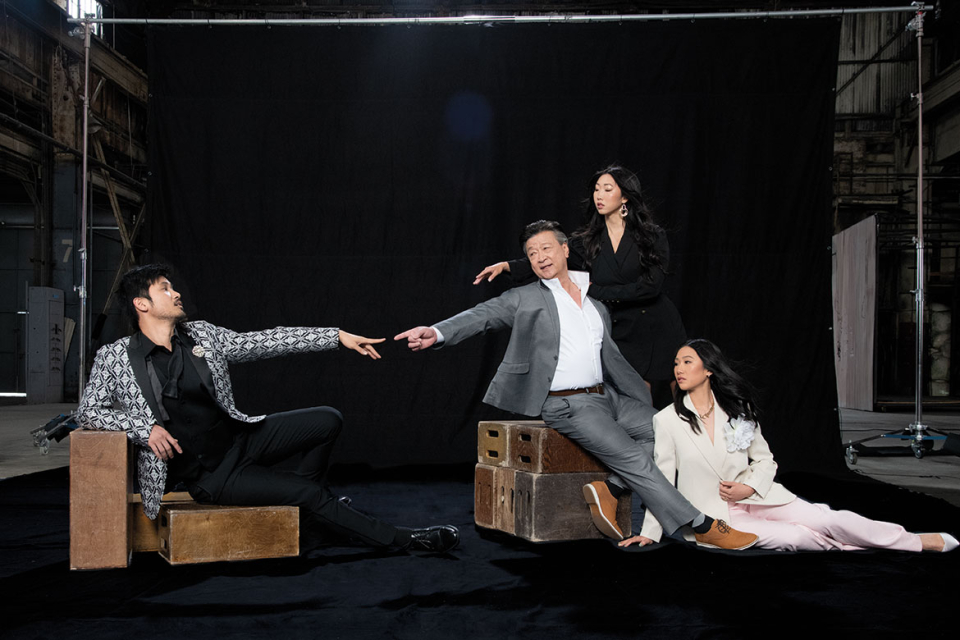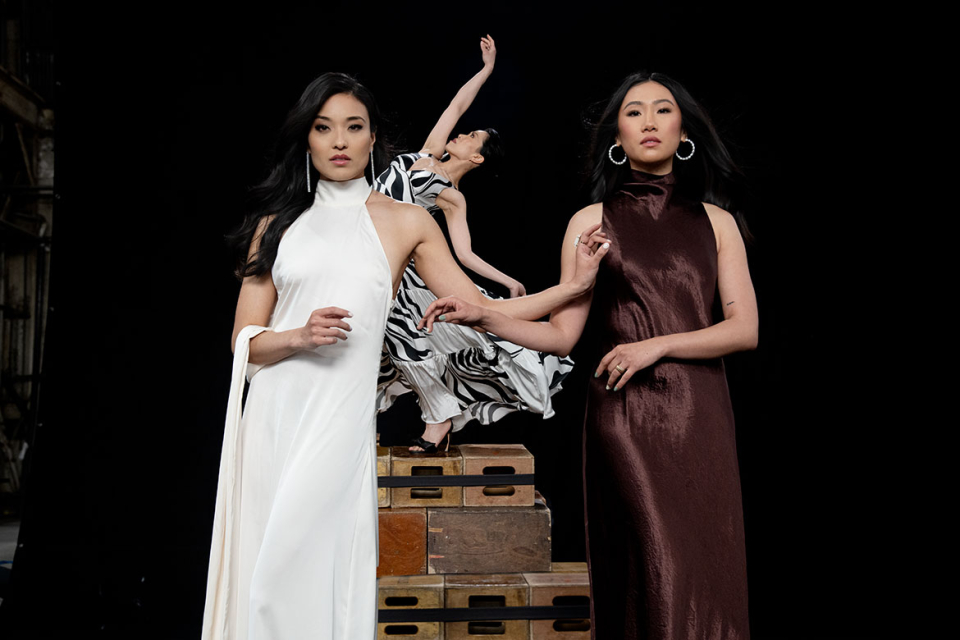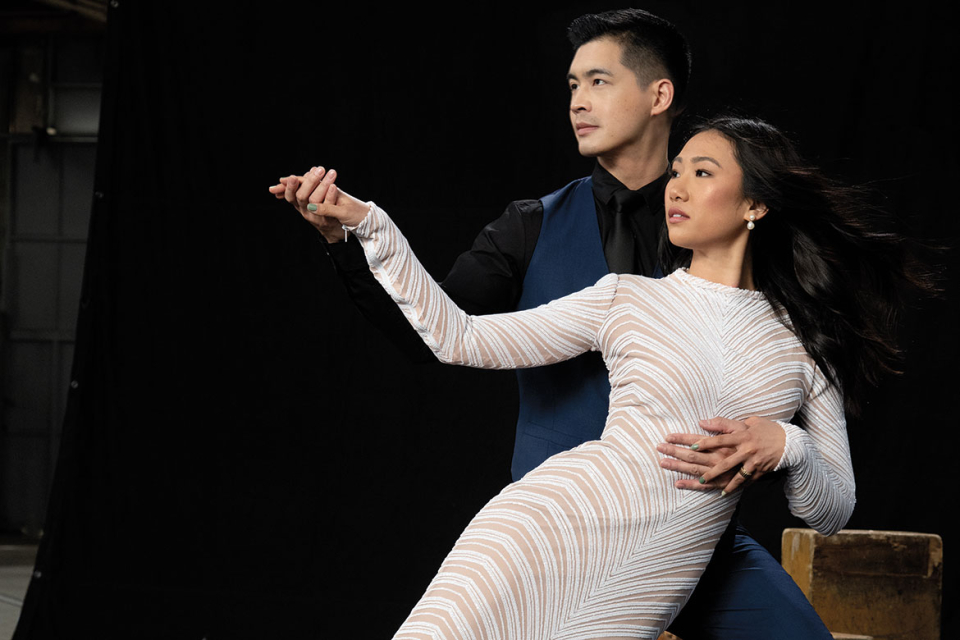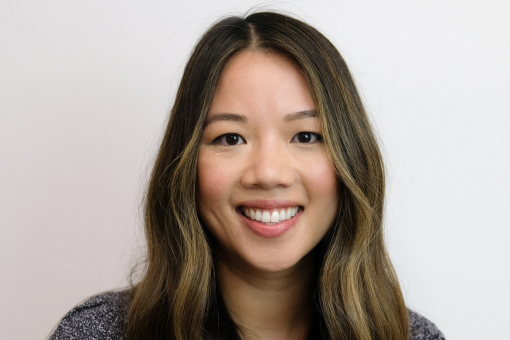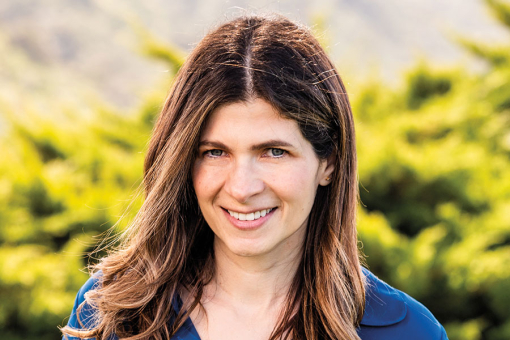When The CW decided to reimagine the 1972–75 series Kung Fu, a few changes were in order. The original starred Caucasian actor David Carradine as a half-Chinese, half-American Shaolin monk trained in martial arts, searching for his half-brother in the nineteenth-century American West. In the progressive remake, Olivia Liang leads a predominantly Asian and Asian-American cast as Nicky Shen, a Harvard dropout-turned-Shaolin warrior with a disarming roundhouse kick.
Premiering last year at a time of high-profile anti-Asian hate crimes, the series — from coshowrunners Christina M. Kim (Blindspot, Hawaii Five-0) and Robert Berens (Supernatural) — provided an inside look at a modern American family of immigrant parents and their children.
"I love playing a strong woman who stands up for her community, takes up space and uses her voice for good," Liang says. She adds that the series "doesn't make a caricature of Chinese or Asian-American culture, but showcases it."
During a photo shoot for emmy, Liang and other key cast members shared thoughts on their show — now in its second season and already picked up for a third — and on representation in the industry with contributor Whitney Friedlander.
OLIVIA LIANG
NICKY SHEN
The CW may be known for characters in capes, but the focus of Kung Fu was always on a naturally flawed heroine and not on "the one person who can save us all," Liang says.
"Of course, Nicky is strong," says the actress, previously seen on The CW's Legacies, "and she uses her skills to help her family and community. But she can't do it alone, the way we see many superheroes take on challenges." This, she says, is the most interesting thing about the role — and not that Nicky has super abilities (if not actual superpowers).
Before reading the pilot script, Liang expected stereotypes. She rolled her eyes, she says, and thought, "Really? A show called Kung Fu? Then I read the script and saw so much of myself — my experiences and those of the Asian-American friends around me — in one script for the first time ever."
She acknowledges that some of the characters have jobs that have been stereotyped as common AAPI professions — restaurant owner, doctor, tech wiz — but adds, "In Kung Fu, we see the lives lived by the restaurant owners, the doctor, the tech wiz and the college dropout."
TZI MA
JIN SHEN
Veteran film and TV actor Ma, whose many credits include Prime Video's The Man in the High Castle and the film The Farewell, says he's played "every Asian ethnic — I've done it all." He's concerned about the trend in casting "ethno-specificity," especially among Asian and Latinx performers, because "white actors don't get that kind of scrutiny."
The key, Ma says, is to do work that's "representative and true to our art form" and "to make sure it rings true to the ethnicity that we represent."
SHANNON DANG
ALTHEA SHEN
A fan favorite thanks to her scene-stealing one-liners and stellar costumes, Dang's Althea — sister to Liang's Nicky — could easily have been written (and written off) as status-obsessed and concerned mostly with her social media followers and designer handbags. Instead, Dang says, "The writers do a great job of making Althea so much more than her amazing wardrobe and seemingly perfect or superficial life.
"Yes, she's a tech genius and a CEO girlboss, and she has the perfect husband and wardrobe," Dang admits. "But she also has a big heart, is extremely flawed, has a dark past and doesn't know what to do with her career."
As an actress, Dang says, "I always look for moments to ground her by making her as honest, messy and authentic as possible. She's extremely human, goofy, loves fiercely and wants to give back to her community."
JON PRASIDA
RYAN SHEN
In his portrayal of Nicky's brother Ryan, a medical student who is gay, Prasida says he benefits from Kung Fu's "engaging storytelling" and the show's rejection of stereotypes regarding sexual orientation. "We see Ryan go through what any person would go through when it comes to pursuing a relationship."
Prasida also had initial concerns that a show about a martial arts expert would play to stereotypes about people of Asian descent. "But this conversation discussed in this manner is a losing battle," he says. "If we lean into martial arts, it's stereotyping. If another culture participates in martial arts, it's appropriating. Stereotyping occurs when we cannot see the full picture. We are more than just the art form.
"The culture exists to be respected and appreciated, but the people within that world are human and have very human experiences that we can all relate to. Kung Fu provides that full picture."
EDDIE LIU
HENRY YAN
As martial arts expert Henry Yan, Liu plays one of Nicky's love interests. Making the show during a time of anti-Asian sentiment brought up a variety of emotions, he says. "There was a long period last year where I was dealing with a mixture of survivor's remorse and imposter syndrome. I had a hard time reconciling this juxtaposition, where my castmates and I had the amazing privilege of being featured in the news because our show was premiering soon.
"Meanwhile," he continues, "some of the most vulnerable members of our community were in the news because of the senseless and horrible violence they suffered. It just felt so unfair, so wrong. Some days are harder than others. But being with my coworkers and seeing people fight for our community gives me hope."
GAVIN STENHOUSE
EVAN HARTLEY
One of the show's few Caucasian performers, Stenhouse appears as assistant district attorney Evan Hartley, another of Nicky's love interests. But as a native of Hong Kong, the actor brings a uniquely relevant background to Kung Fu. "I have such fond memories of growing up in Hong Kong," he says, "and I have a deep love of the Cantonese language and culture. To be able to be in a show that represents such a broad spectrum of Asian and Asian-American experiences is a particular joy for me."
And yet another reward: "There is an empowerment in taking back control of the history and artistry of Asian and Southeast Asian martial arts" from shows and films with white leads — like the first Kung Fu series and movies like Kill Bill and The Last Samurai.
TONY CHUNG
DENNIS SOONG
In the show, Althea's wealthy husband, Dennis, relies on wealth and connections. As an active user of Instagram in his real life, Chung says, "Technology has leveled the playing field" when it comes to inclusivity. "With platforms like YouTube and Instagram, everyday folks from all walks of life can now share their stories with a global audience. It's now impossible to impede diversity, and that is a beautiful thing."
He mentions the "mere exposure effect," a psychological phenomenon whereby people are more accepting and even fond of something after seeing more examples of it. "In that vein," he says, "our show is the exposure and therapy our community needs to bring a familiarity to the Asian-American profile."
VANESSA KAI
PEI-LING ZHANG
Kai's character holds a position familiar to fans of the kung fu genre: she is Nicky's shifu, or mentor, from the monastery. However, Pei-Ling was killed (by her own sister!) while protecting a sacred sword and now speaks to Nicky as an oracle.
"After reading the first few pages of my audition sides," Kai recalls, "I knew that Christina M. Kim's reimagining of the show was going to break down stereotypes."
"Don't get me wrong — I love martial-arts films and stories about martial-arts experts," she goes on. "I also think creatively using martial arts in a story is no different than a well-choreographed car chase or shootout. But because martial arts is very culturally specific, how it is used within storytelling and who is representing it determines whether we are enhancing a stereotype or sharing something culturally specific as a vehicle for a greater goal — which is what I believe this show does."
YVONNE CHAPMAN
ZHILAN
As the nefarious Zhilan, a skilled martial artist with a penchant for sororicide, Chapman's character is both an obsession and an antagonist as Nicky learns more about her mentor and what secrets she has kept. Chapman is also known for a role in a very different series, the Canadian drama Family Law.
Of Kung Fu, Chapman says, "At its core, the show is about family. The dynamics of the Shen family are exemplary of not just the Asian-American experience but of many families." She hopes that with this show "we create space for each other in our imaginations and consciousness.
"That's important, because if we don't live in the consciousness and minds of one another, we remain foreign," she continues. "And we are not foreign. We are your neighbors, friends and colleagues. Diverse storytelling with diverse casts and crew is a more accurate depiction of the world and reiterates our shared human experiences."
The season-two finale of Kung Fu will air June 15; previously aired episodes are available on CWTV.com and The CW app. In addition to coshowrunners Christina M. Kim and Robert Berens, the executive producers of Kung Fu include Greg Berlanti, Sarah Schechter, Martin Gero and David Madden.
This article originally appeared in emmy magazine issue #5, 2022, under the title, "Within Reach."



